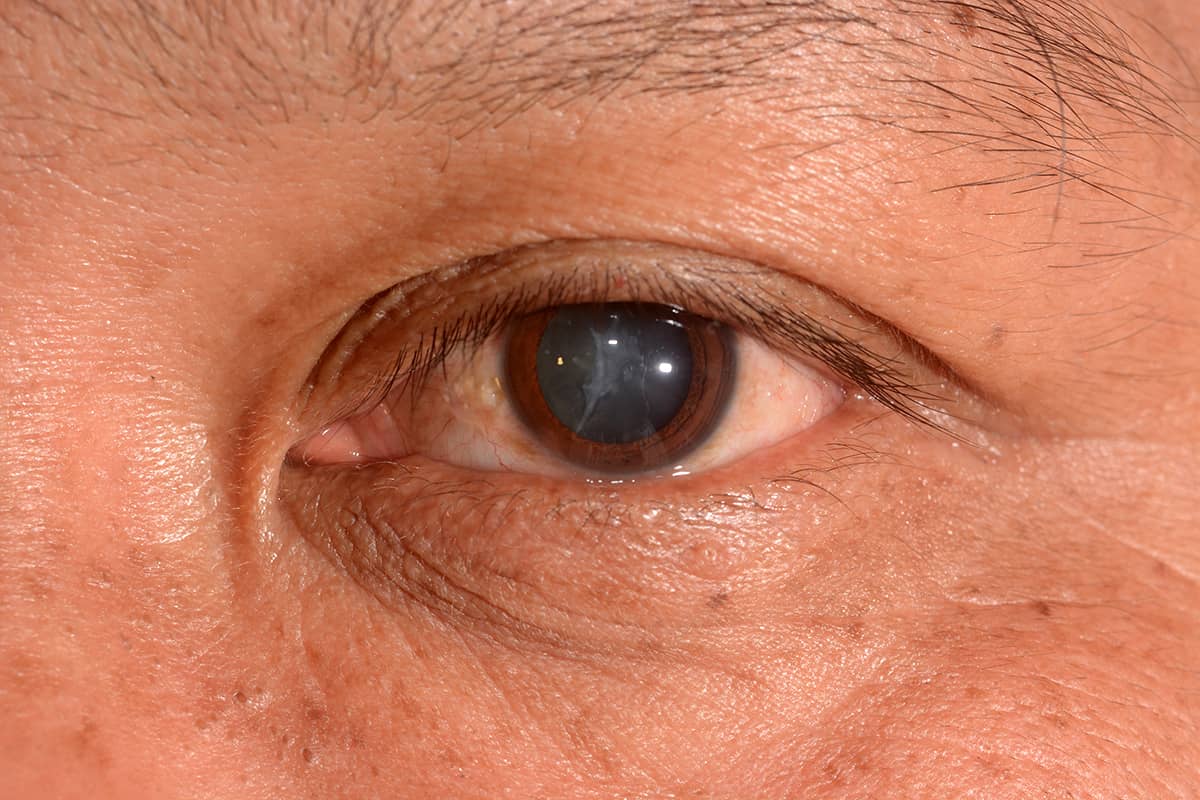You could call them one of the defining traits of the ‘getting old’ process. Cataracts are the clouding that occurs in the lens of the eye which leads to a decrease in vision. It’s a common condition among Singaporeans (as well as people around the world).
Cataracts often develop slowly with symptoms such as blurry vision with halos around light or seeing faded colours.
Dr Jimmy Lim Wei Kheong is the Medical Director and a Senior Consultant at JL Eye Specialists. He is an eye surgeon who specialises in cataract, refractive surgery (LASIK), cornea, and general ophthalmology. On Human Sessions, he answered questions related to cataracts, from prevention measures to solutions. Here's what the doctor had to share.
There are many different types of cataracts

There are various kinds of cataracts that many people might not be aware of. Some are congenital, while some can be brought about by trauma and injury. In fact, some cataracts can be associated with the use of medications such as steroids!
However, the most common cataracts are related to degeneration caused by aging (as you probably guessed).
Protective eyewear can help prevent cataracts

The prevention of cataracts includes wearing protective eyewear during racquet games, like squash or badminton to shield your eyes from injury.
Additionally, you may want to wear sunglasses with UV protection when outdoors to decrease harmful UV ray exposure. You can also do so at the workplace if you are exposed to heat and particles there.
Untreated cataracts may cause long-term damage

While there is a likelihood that untreated cataracts can lead to further damage, they are quite uncommon in developed countries like Singapore, given that healthcare is accessible to the general population.
If cataracts become "hard" or dense, they can block vision and cause poor eyesight or in some cases, blindness. However, this can be corrected with cataract surgery.
Permanent blindness can be caused by high eye pressure brought on by severe cataracts

When cataracts turn “intumescent”, “swollen” or “hypermature”, inflammation or very high eye pressure may occur. This can, in turn, lead to permanent blindness since the nerves of the eye can be damaged.
Patients with significant cataract issues should undergo cataract surgery, which is usually safe and effective. Learn more here.
Cataracts might return after surgery

Patients may experience cloudy vision again after cataract surgery, a few months (or even a few years later). This is most likely due to having posterior capsular opacities. It isn't a complication from the initial surgery but nonetheless can happen sometimes.
The condition can be managed effectively via a laser procedure known as YAG capsulotomy.
Glasses might not even be necessary after cataract surgery

Dr Lim uses biometric technology and modern equipment to ensure his patients can be independent of spectacles after undergoing cataract surgery.
However, some patients might still require glasses if they are best suited for monofocal lenses (for a combination of short and far-sightedness), or if their astigmatism is high.
Yes, astigmatism can be fixed with cataract surgery

Thanks to many years of medical advancements, astigmatism can now be corrected during cataract surgery. The current intraocular lens technology can correct low to high astigmatism with a great deal of precision and allow many patients to ‘kill two birds with one stone’.
Watch out for floaters after cataract surgery

Floaters are common symptoms in many people's eyes. Usually, they’re caused by the degeneration of vitreous gel and posterior vitreous detachment. Since patients with cataracts have poorer vision, they may not be able to detect floaters in their field of view until after their vision improves.
You need to let your eye surgeon know about your symptoms so he or she can perform the necessary eye examination.
Is cataract surgery possible after LASIK? Yes!

Cataract surgery is possible after LASIK. Many patients had LASIK performed when they were younger and developed cataracts at a later age, which can then be treated with surgery.
However, LASIK changes the power of the cornea so biometric measurements might lead to slightly inaccurate refractive outcomes after cataract surgery.
Cataracts may be something you worry about for your elderly relatives or as you get older. Fortunately, we have access to medical breakthroughs that can improve our eyesight and general health as the ageing process takes its natural course.
Consider getting treatment or screening if you are at risk of cataract problems for your elderly loved ones or yourself as soon as possible.
Would you like to ask any related health questions?
You can Ask A Doctor right away, or view the complete list of Human Sessions.










